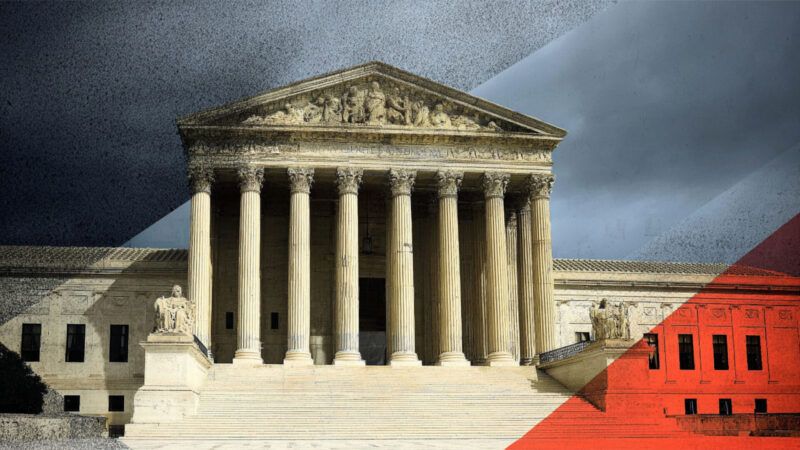The Problem With the Supreme Court's 'Shadow Docket'
Plus: Did Mario Vargas Llosa write the world’s greatest political novel?

In May, the U.S. Supreme Court granted an emergency request by the Trump administration to allow President Donald Trump's firing of National Labor Relations Board member Gywnne Wilcox to go into effect while Wilcox's lawsuit against Trump played out in court.
Last week, the Supreme Court granted another emergency request by the Trump administration, this time allowing the firing of some 1,300 federal workers from the Department of Education to proceed while that lawsuit played out in court.
Can you identify the key difference between the two cases?
You’re reading Injustice System from Damon Root and Reason. Get more of Damon’s commentary on constitutional law and American history.
Each one seemed to affirm the same broad view of presidential control over federal agencies—yet only one of them actually said so. In the first case, Trump v. Wilcox, the Supreme Court issued an opinion that both explained its decision and offered a legal justification for it. But in the second case, McMahon v. New York, the Court offered no explanation at all. That case only said that Trump's emergency request was granted and left it at that. (The same three justices, Sonia Sotomayor, Elena Kagan, and Ketanji Brown Jackson, dissented in both cases.)
Why did the Supreme Court justify its order in one case while remaining silent in the other? The answer is that we simply don't know because a majority of the Court has declined to say.
Critics have dubbed this uncertain legal terrain "the shadow docket," a pejorative term that covers the various emergency orders and summary judgments that the Supreme Court sometimes issues on an expedited basis, all without the benefit of full briefing and oral arguments. In some instances, such as McMahon, a "shadow docket" ruling will not even include a written decision from the justices who made it.
The lack of any written decision is the part of all of this that has never sat well with me. The Supreme Court's emergency orders in Wilcox and McMahon both involved important questions of executive authority and both, at least on the surface, seemed to effectively resolve the matter in the president's favor, thus rendering any further litigation futile.
Yet we only have access to the majority's rationale in one of the two. In Wilcox, for example, the majority clearly said that Trump's firing of the agency official may go into effect because Trump "is likely" to prevail after the litigation has fully played out. Why did the majority expect such a likelihood of success? "Because the Constitution vests the executive power in the President," the Court's Wilcox order stated, "he may remove without cause executive officers who exercise that power on his behalf, subject to narrow exceptions recognized by our precedents." And in "our judgment," the order continued, "the Government is likely to show" that a NLRB board member qualifies as an officer who "exercise[s] considerable executive power."
Perhaps a similar expectation of ultimate success also explains why the administration's emergency request was granted in McMahon. But perhaps it doesn't. Perhaps there was another reason for the order. Yet only the Supreme Court can say for sure and the majority is pointedly not saying anything one way or the other. So, who knows if further litigation in McMahon is futile or not.
That kind of guessing game does a disservice to the rule of law.
Odds & Ends: What's Your Favorite Political Novel?
After the great Peruvian novelist and Nobel Prize winner Mario Vargas Llosa died earlier this year, I was inspired to read or reread several of his books. I recently finished The Feast of the Goat (translated from the Spanish by Edith Grossman) and it is an incredible work of literature, even better than I remembered. I don't know if it is the greatest political novel ever written, but I do think it deserves to be in the running. (I would also cast a vote in this category for Robert Penn Warren's magnificent All the King's Men.)
The Feast of the Goat is a fictionalized account of the depraved regime of Rafael Trujillo, the right-wing dictator who ruled over the Dominican Republic from 1930 until his assassination in 1961. Much of the book is drawn from the historical record, although some key characters are entirely the work of the author's imagination. The novel's interlocking story lines partially follow the actions and thinking of Trujillo, and partially follow the actions and thinking of some of his victims, both real and fictional. The result is a haunted and haunting reckoning with a vile regime and its destructive hold on power.
Not exactly a cheerful book, to be sure, but I do highly recommend it.


Show Comments (36)